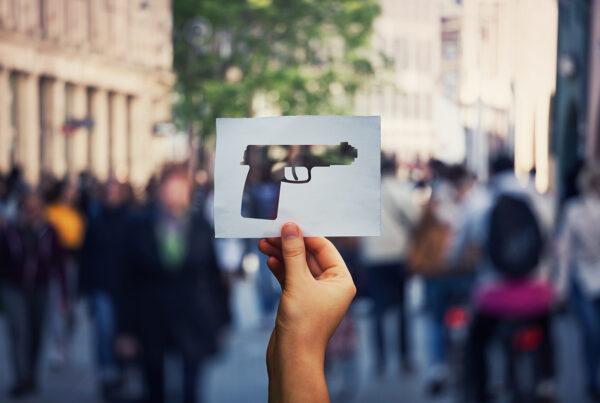In September 2022, Lashawn Thompson tragically died after 3 months inside Fulton County jail. His body was covered in bed bugs and insects. The cause of death? Severe neglect. The cause of incarceration? Being unable to afford his $2,500 bail for a misdemeanor charge.
Unfortunately, horrifying stories like this are all too common. On any given day more than 400,000 legally innocent people are held in abhorrent and often deadly conditions in jails across the country. These people – our family, friends, and fellow community members – have not been convicted. They are being jailed pretrial as they await their day in court. The vast majority are forced to suffer through unsanitary conditions, violence, and deplorable healthcare for one simple reason: they cannot afford to pay the price tag on their freedom.
Even one night of pretrial incarceration can be devastating: people lose their jobs, homes, and health. Their family members suffer. Approximately one third of sexual victimization involving jail staff happens in the first 24 hours in custody, and roughly 40% of jail deaths occur within the first week behind bars.
And the crisis of death by incarceration is not getting any better. In fact, it’s getting worse. According to the Bureau of Justice Statistics, in 2019 (the most recent year for which data is available), approximately 1,200 people died in local jails—a 33% increase in less than 20 years. 2022 marked the deadliest year at Rikers Island in nearly a decade. Since 2021, more than 50 people have died while jailed in Harris County. Over the course of just nine days in March 2023, three men lost their lives while being held in Men’s Central Jail in Los Angeles, California.
One of the cornerstones of our democracy is that people are innocent until proven otherwise. Yet the horrendous conditions in our nation’s jails can be tantamount to a death sentence for people who have not even been convicted. We cannot accept even one of these deaths, let alone thousands.
And while improving jail conditions to reduce harm to people being held in these facilities is an important and valuable intervention, there is another more immediate life saving solution: ending the use of cash bail.
Right now, cash bail, the single biggest driver of pretrial incarceration in America, is all that stands in the way of millions of legally innocent people being able to defend themselves from their homes, instead of from inside their jail cells. Still, in courts across the country, bail is set at amounts that people cannot afford, violating the U.S. Supreme Court and our Constitution, and undermining the validity of our justice system and these important constitutional rights. We do this for no better reason than to punish. Research shows that bail, and the increased incarceration caused by excessive bail setting, does not reduce crime. In fact, it drives people further into debt and poverty, worsens the consequences of drug dependency, and exacerbates physical and mental health issues, which are at the root of most crime.
If we want to keep our communities safe, we need to reconsider when and why we detain people in the first place. Bail reforms, which generally focus on removing or limiting the use of cash bail against defendants who are accused of various offenses, aim at making sure most defendants are not held in jail while awaiting trial solely because they cannot afford to pay their bail. It’s common sense: Fewer people subjected to jail means fewer people facing woefully inadequate health care services, threats of physical and sexual violence, and death that occurs when people are inside our country’s jails. It also means better and fairer court outcomes—research shows that, compared to someone who is detained in jail pretrial, people who are released have fewer convictions, take fewer plea deals, and receive sentences that are less likely to require additional jail or prison time. By reforming the system to help people avoid jail altogether, we also decrease the chances that someone will become justice-involved down the line.
By ending cash bail, we can uphold the promise of equal justice under the law and actually improve public safety. And most importantly, we can save lives.
Thank you for reading and your willingness to engage in a complicated and urgent issue. In addition to providing immediate relief by offering bail assistance, we at The Bail Project are working to advance systemic change. Policy change doesn’t happen without the support of people like you. If you found value in this article, please consider taking action today by donating.












